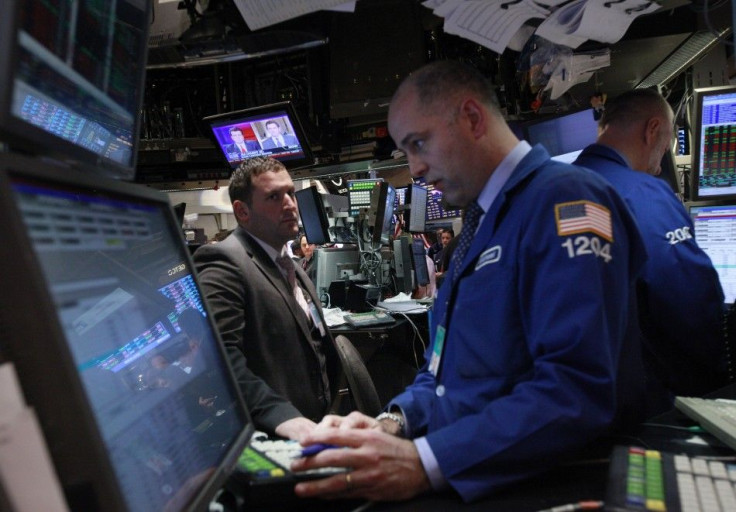US Stock Futures Signal Flat Open Ahead Of The Sequester

U.S. stock index futures point to a flat open on Friday as investors remain wary over the automatic sequester spending cuts scheduled to go into effect at midnight barring a last-minute deal between the White House and Republicans. Talks in Washington ended on Thursday without a final deal, which appears increasingly elusive as lawmakers fail to arrive at a consensus to avert the sequester.
Futures on the Dow Jones Industrial Average were down 0.02 percent, futures on the Standard & Poor's 500 Index were down 0.09 percent and those on the Nasdaq 100 Index were up 0.07 percent.
The automatic spending cuts, or sequester, in the U.S. that are set to go into effect at midnight loom large as U.S. lawmakers failed to reach any deal to avert the steep automatic budget cuts. Both the Democrats and Republicans put forward last-minute plans in the Senate on Thursday, but both were swiftly voted down.
President Barack Obama is scheduled to meet Congressional leaders on Friday to discuss the sequester, which will cut $85 billion in spending from the defense and domestic budgets in the remainder of the 2013 fiscal year. It is not widely expected that a deal will be reached. The sequester is likely to shave off roughly 0.3 to 0.4 percent of GDP growth this year, which would cause a small dent in the recovery at worst, a note from Credit Agricole said.
Investors are also expected to focus on the publication of the Institute of Supply Management’s (ISM) manufacturing Purchasing Managers’ Index (PMI) report and the Commerce Department's latest personal income and spending data.
The Institute of Supply Management’s manufacturing data for February will be released at 10 a.m. EST. The manufacturing PMI, which measures the relative level of business conditions, including employment, production, new orders, prices, supplier deliveries and inventories, is expected to decline to 52.5 in February, down from 53.1 in January. A level above 50 represents expansion in the industry.
Investors also await the release of the monthly core Personal Consumption Expenditures (PCE) price index report before the markets open. The Commerce Department will release the January personal income and consumption data at 8:30 a.m. EST.
Economists expect a sharp 2.5 percent decline in income and a 0.2 percent increase in spending in January after they gained 2.6 percent and 0.2 percent in the prior month. The core PCE index is expected to increase 0.2 percent.
In addition, the University of Michigan’s index of consumer sentiment will be released after the opening bell. The index is expected to show that confidence levels remained unchanged at 76.3 in the final February reading.
On Thursday, U.S. stock markets erased gains and slipped into negative territory in the final minutes of trading. The Dow Jones Industrial Average declined 0.15 percent, the S&P 500 Index was down 0.09 percent and the Nasdaq Composite Index declined 0.07 percent.
U.S. economic data on Thursday was mixed with fourth quarter GDP growth revised to 0.1 percent from an initial estimate of a 0.4 percent contraction, but the increase was less than economists’ estimate of 0.5 percent growth. Meanwhile, other reports showed a drop in new U.S. claims for jobless benefits last week and a sharp rise in Chicago-area manufacturing activity in February.
European stock markets were trading slightly higher with Germany's DAX30 up 0.17 percent, France's CAC 40 gaining 0.03 percent and London's FTSE 100 advancing 0.18 percent.
Asian stock markets were mixed Friday as disappointing Chinese manufacturing growth weighed on the investors. The Japanese Nikkei gained 0.41 percent and India’s BSE Sensex advanced 0.50 percent, while the Chinese Shanghai Composite declined 0.26 percent and Hong Kong’s Hang Seng fell 0.61 percent.
Data released by the China Federation of Logistics and Purchasing on Friday showed that the Purchasing Managers' Index (PMI) declined to 50.1 in February from 50.4 in January and fell short of the economists' estimate of 50. Meanwhile, the final reading of the HSBC Flash Purchasing Managers' Index (PMI) also declined, to 50.4 in February, from January's two-year high of 52.3.
© Copyright IBTimes 2024. All rights reserved.





















